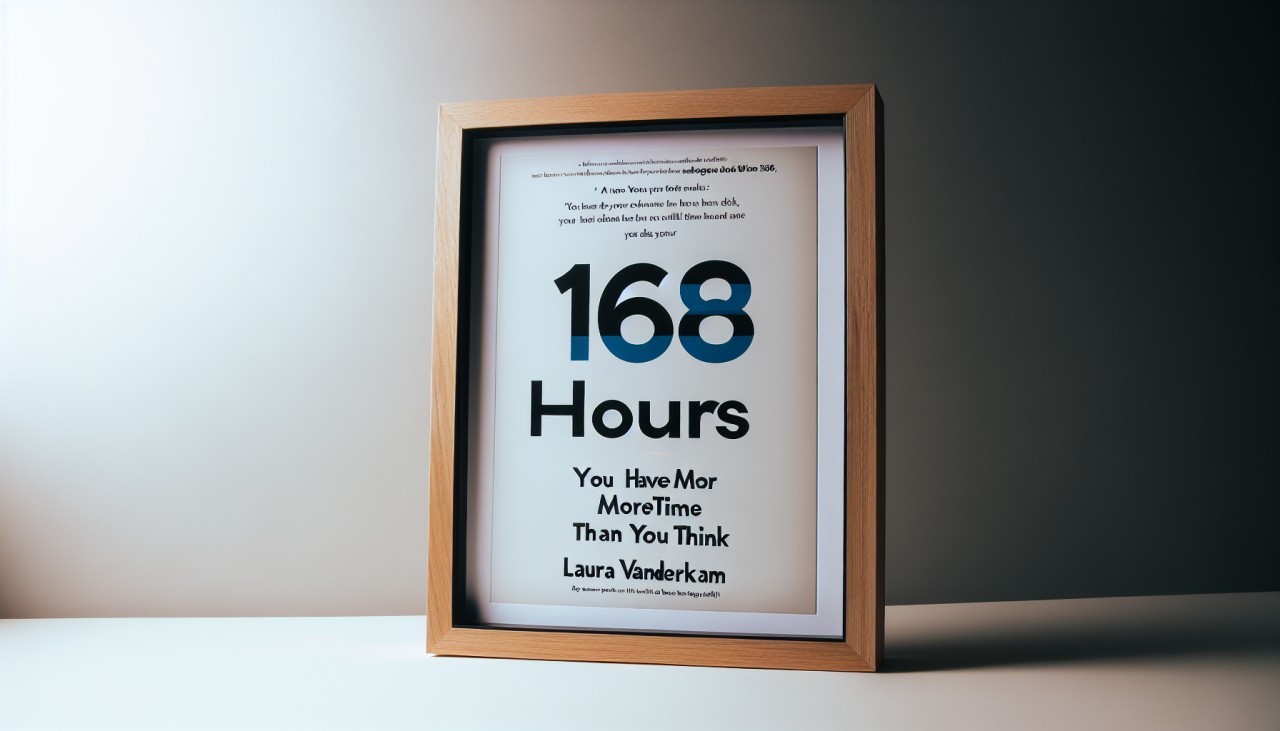In "168 Hours: You Have More Time Than You Think," Laura Vanderkam presents a compelling argument that we all have more time than we realize. By tracking our weekly activities, she suggests we can uncover hidden hours that can be redirected toward our priorities. For instance, many individuals find they spend excessive time on social media or watching television, which could be better utilized for personal development or quality time with loved ones. Vanderkam emphasizes the importance of identifying and focusing on our core competencies—the tasks and activities that align with our strengths and goals. By prioritizing these competencies and delegating or eliminating non-essential tasks, we can enhance productivity and satisfaction. She also introduces the concept of the "Ideal Week," encouraging readers to plan their schedules intentionally, allocating time for work, family, health, and personal interests. This proactive approach helps in balancing various aspects of life and ensures that time is spent on what truly matters. Vanderkam's insights are not just theoretical; they are backed by real-life examples and practical exercises that readers can implement immediately. For example, she suggests creating a list of 100 dreams to identify passions and setting specific goals to work towards them. This exercise helps in rediscovering one's interests and aligning daily activities with long-term aspirations. Additionally, Vanderkam advocates for outsourcing or eliminating tasks that do not contribute meaningfully to our goals, thereby freeing up time for more impactful activities. She provides examples of individuals who have successfully delegated household chores or administrative work to focus on their professional and personal growth. The book also addresses the importance of rest and leisure, emphasizing that downtime is essential for maintaining productivity and overall well-being. Vanderkam encourages readers to schedule leisure activities with the same intentionality as work tasks, ensuring a balanced and fulfilling life. Overall, "168 Hours" serves as a practical guide for anyone looking to make the most of their time, offering actionable strategies to create a life that reflects one's values and aspirations.
In the second part of the book, Vanderkam delves deeper into specific strategies for time management and personal development. She discusses the significance of setting clear priorities and aligning daily activities with long-term goals. By identifying what truly matters, individuals can make informed decisions about how to allocate their time, ensuring that their actions are purposeful and directed toward meaningful outcomes. Vanderkam also highlights the role of habits in shaping our daily routines. She suggests that by cultivating positive habits, such as regular exercise or dedicated reading time, individuals can create a structured environment that supports their objectives. These habits not only enhance productivity but also contribute to personal growth and satisfaction. The book further explores the concept of work-life integration, proposing that instead of striving for a perfect balance, individuals should seek harmony between their professional and personal lives. This approach allows for flexibility and adaptability, enabling individuals to respond to changing circumstances while staying true to their core values. Vanderkam also addresses the challenges of managing external expectations and societal pressures, encouraging readers to set boundaries and make choices that align with their personal goals. She provides strategies for saying no to non-essential commitments and focusing on activities that bring joy and fulfillment. Throughout the book, Vanderkam emphasizes the importance of self-reflection and continuous improvement. She encourages readers to regularly assess their time usage and make adjustments as needed, fostering a mindset of growth and adaptability. By implementing the strategies outlined in "168 Hours," individuals can transform their approach to time management, leading to a more intentional and rewarding life.
Key Takeaways
- Track your time to identify hidden hours and reallocate them toward priorities.
- Focus on core competencies and delegate or eliminate non-essential tasks.
- Plan your "Ideal Week" to balance work, family, health, and personal interests.
- Create a list of 100 dreams to rediscover passions and set specific goals.
- Outsource tasks that do not contribute meaningfully to your goals.
- Schedule leisure activities with the same intentionality as work tasks.
- Cultivate positive habits to support personal and professional growth.
- Set boundaries to manage external expectations and societal pressures.
Example
To apply the principles from "168 Hours," start by tracking your daily activities for a week to identify time drains. Use a time-tracking app or a simple notebook to log your tasks. Once you've identified areas where time is being wasted, such as excessive social media use, set specific goals to reduce that time and reallocate it toward activities that align with your priorities, like exercising or learning a new skill. Additionally, consider outsourcing tasks that do not require your specific expertise, such as hiring a cleaning service or using meal delivery services, to free up time for more meaningful activities. By implementing these strategies, you can create a more balanced and fulfilling life.
